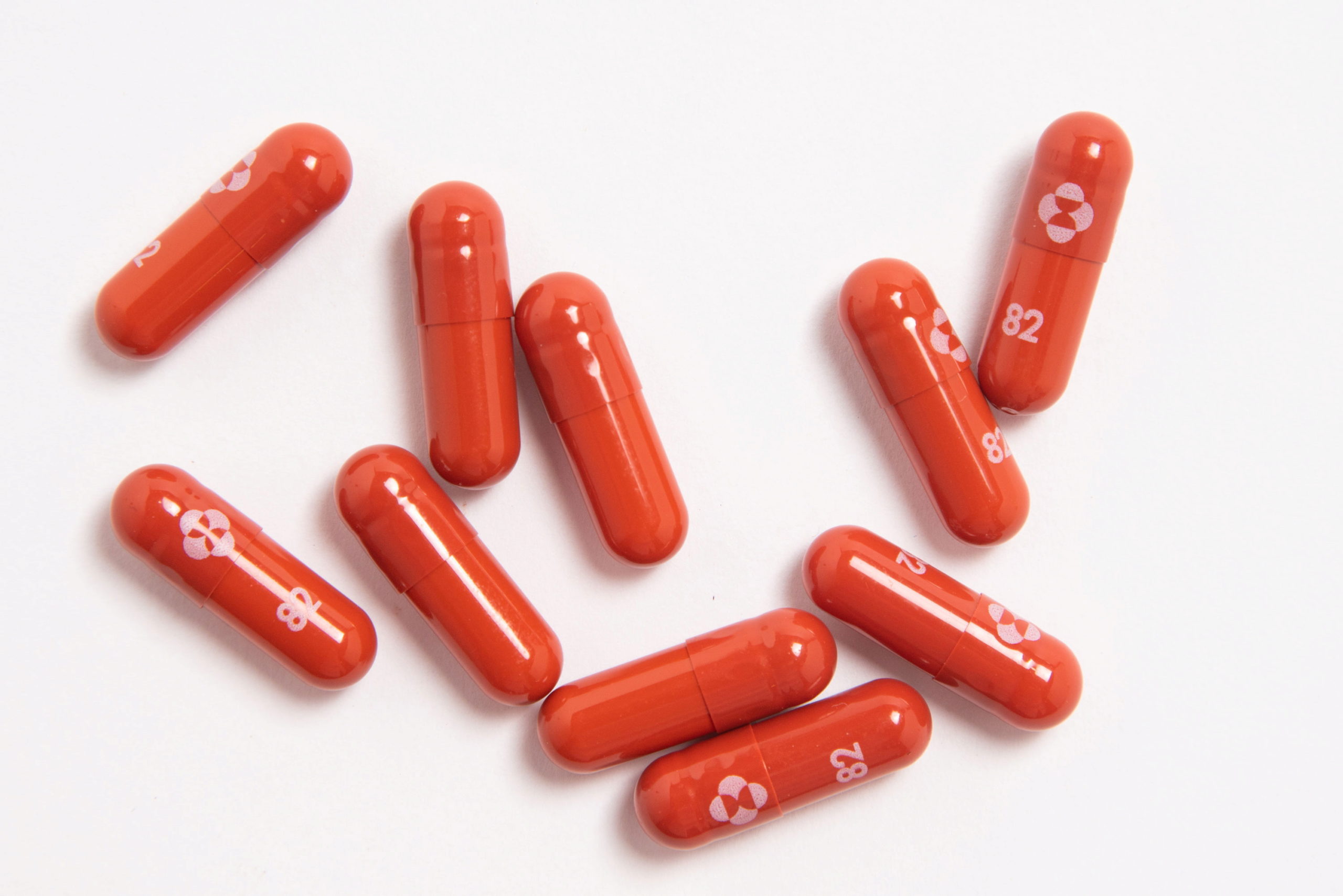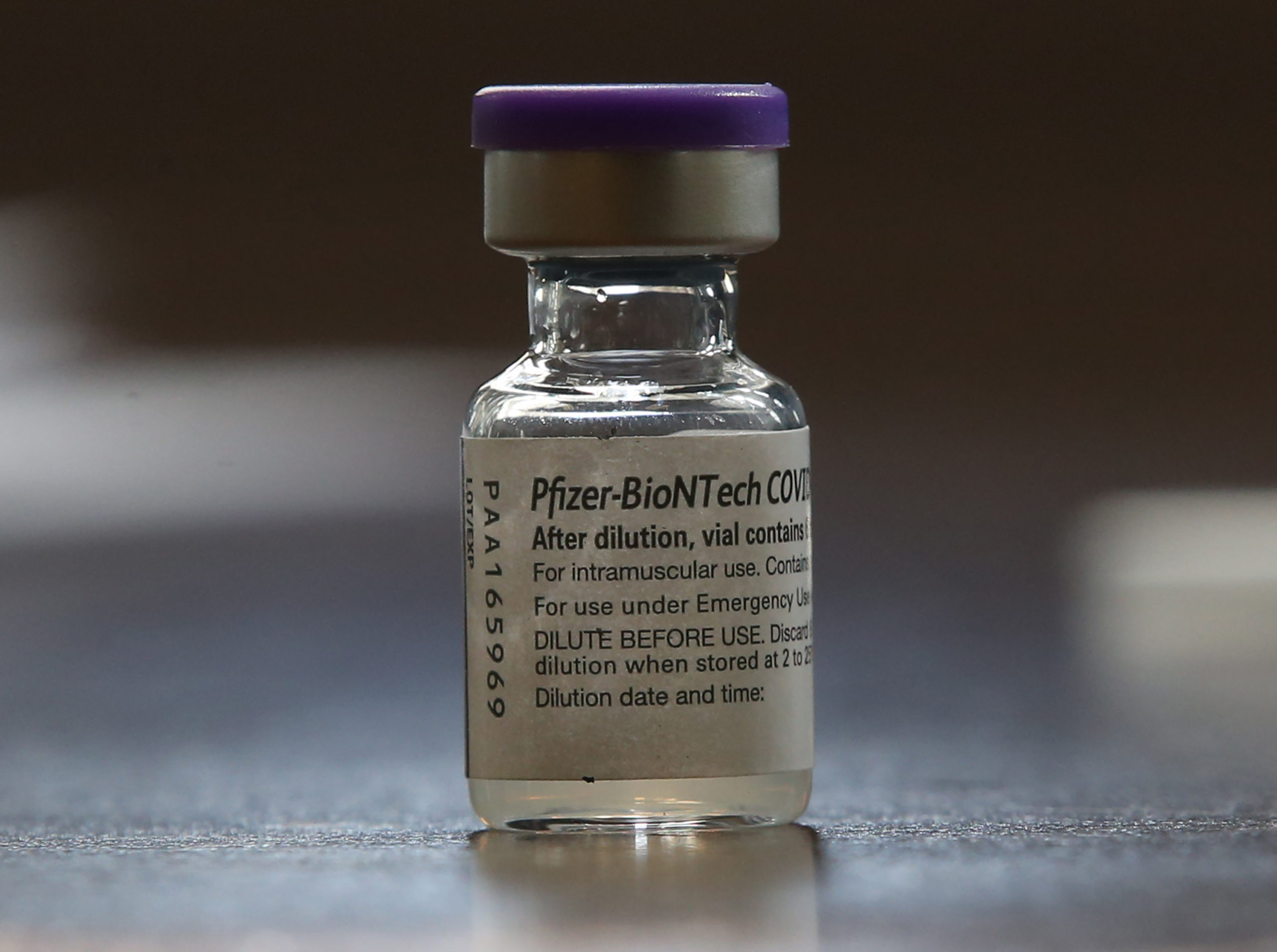- According to Chris James, group manager at the Health Ministry’s medical regulation arm Medsafe, Ronapreve is a monoclonal antibody drug that replicates the body’s natural defenses for battling the disease. New Zealand’s medication authority authorized Ronapreve, a new Covid-19 medicine that can prevent and cure the disease. It is not a replacement for vaccination, and its efficacy against the Omicron strain has yet to be shown.
According to Xinhua news agency, the clinical advice is that it is a significant advance because it reduces the severity of Covid-19 by keeping more cases out of the hospital and shortening the duration of symptoms and infectious period, which reduces the risk of patients spreading the virus to others.
According to him, Ronapreve is licensed for the treatment of Covid-19 in those severely affected by the virus and are at a high risk of developing severe sickness. He said that the drug is also licensed for preventing Covid-19 in patients who have been exposed to the virus but have a medical condition that renders immunization unlikely to protect them.
People were having weak immune systems, such as cancer patients, transplant recipients, and those with immunodeficiency illnesses, fall into this category. According to James, these people are more prone to infections and have a poor response to immunization, who also noted that Ronapreve is not licensed for use in children.
Tuesday’s news is a huge step forward in giving health professionals a new tool that will allow them to save lives while also relieving the burden on hospitals, enabling them to focus on treating people with other problems, he added.
He noted that Ronapreve is known to be effective against the Delta variation. Research is currently concentrating on its effectiveness against the Omicron type. Medsafe will continue to assess that information as it becomes available. Pharmac, New Zealand’s national medicine-purchasing agency, reported in late October that it had already obtained enough doses of Ronapreve to treat 5,300 individuals and expected to be able to buy more next year.
Ronapreve has been chosen for fast-tracked approval, along with four other medications, including molnupiravir, to safeguard individuals and healthcare services from the worst effects of the pandemic.
According to him, Ronapreve is the first novel medicine to be licensed by Medsafe. Dexamethasone, an existing steroid therapy, has also been approved for the treatment of Covid-19 because it helps minimize the body’s over-reaction to the virus, which is found in extreme cases of infection.

Covid 19: The efficacy of a pandemic medication against Omicron will be assessed:
As the new Covid-19 strain spreads worldwide, Pharmac says it will seek expert input on the efficacy of a medicine used to treat it. However, Medsafe authorized Ronapreve, a new drug for treating Covid-19. However, current research is centered on its efficacy against the Omicron variety.
Tocilizumab and remdesivir are presently being utilized in New Zealand hospitals, according to Pharmac’s Chief Executive Sarah Fitt, and a stock of baricitinib has been obtained. Ronapreve, also known as Regeneron in the US, is “effective in treating patients with the Delta strain of Covid-19,” according to Fitt. However, the evidence for Omicron is less convincing.
“The data for Omicron is less clear, and we aim to consult with our Covid-19 clinical expert advisory committee in the new year.” Roche’s Ronapreve belongs to a class of drugs known as monoclonal antibodies or mAbs. They act in the same way as the immune system’s natural antibodies do in fighting illness. Pharmac has enough Ronapreve to treat 5300 patients suffering from “moderate to severe” symptoms. MedSafe is still evaluat
ing the application.
Reprieve has been the go-to therapy for early Covid-19 in the United States for more than a year. On the other hand, has issued a warning that laboratory data indicates their medicines will be significantly less effective against Omicron.
While the businesses claim to generate new omicron-targeting antibodies fast, they aren’t likely to be available for at least a few months. The government revealed in late October that Pharmac has already obtained enough Ronapreve medicines to treat 5300 individuals and that it hopes to be able to buy more next year.

Fitt said Pharmac is attempting to get access to more therapy. She couldn’t say much more about the new Covid-19 medicines, but she said that further information would be available after it finalized the deals. Ronapreve was authorized for the treatment of individuals who are severely impacted by Covid-19 and are at a higher risk of their condition becoming severe, according to Medsafe Group manager Chris James.
It’s also licensed for preventing Covid-19 in persons who have been exposed to the virus but have a medical condition that makes immunization improbable. The medicine is not, however, licensed for usage in youngsters. the Ministry of Health said the new strain is closely monitored. Omicron is a novel strain, and as with all recent advances related to Covid-19, we’re keeping a careful eye on the evidence and nations’ reactions.”
COVID-19 mRNA vaccinations are highly successful at preventing mortality but less effective at preventing infection:
mRNA vaccine efficiency in preventing COVID-19 infection was significantly lower than previously reported in an aged group of US veterans with a high comorbidity load. At the same time, effectiveness against mortality was extremely high, according to a target trial emulation research. These findings imply that, even with vaccination, additional infection mitigation activities are still crucial for pandemic control. Annals of Internal Medicine published the study.
The usefulness of the Moderna or Pfizer-BioNTech COVID-19 mRNA vaccines in real-world settings in ethnically and racially varied populations across the United States remains unknown, particularly in more susceptible groups like the elderly with a high comorbidity load.
The US Department of VA healthcare system is the country’s most significant nationwide, comprehensive healthcare system. As a result, it provides a platform for testing vaccinations in this group.
An observational study was planned by researchers from the Veterans Affairs Puget Sound Health Care System and the University of Washington to mimic a target trial of COVID-19 vaccine vs. placebo. From December 11 December 2020 to March 25 March 2021, participants who received at least one dose of the Moderna or Pfizer–BioNTech COVID-19 vaccine (n = 2,099,871) were matched to unvaccinated controls based on demographic, clinical, and geographic factors.
During a follow-up period that lasted until June 30 June 2021, the researchers discovered that vaccination efficacy was 69 percent for SARS-CoV-2 infection and 86 percent for SARS-CoV-2–related mortality at seven or more days following the second vaccine dose. When it prolonged the follow-up period from March 31 March to June 30 June 2021, vaccine efficacy did not decrease.
With increasing age and comorbidity burden, vaccine efficacy against SARS-CoV-2 infection declined. According to the researchers, these data show that, even among those who have been vaccinated, protection against COVID-19 disease will necessitate continuing attention to other mitigation techniques.
Also Read: A Modest Increase In COVID-19 Cases Has Been Reported In Marion County